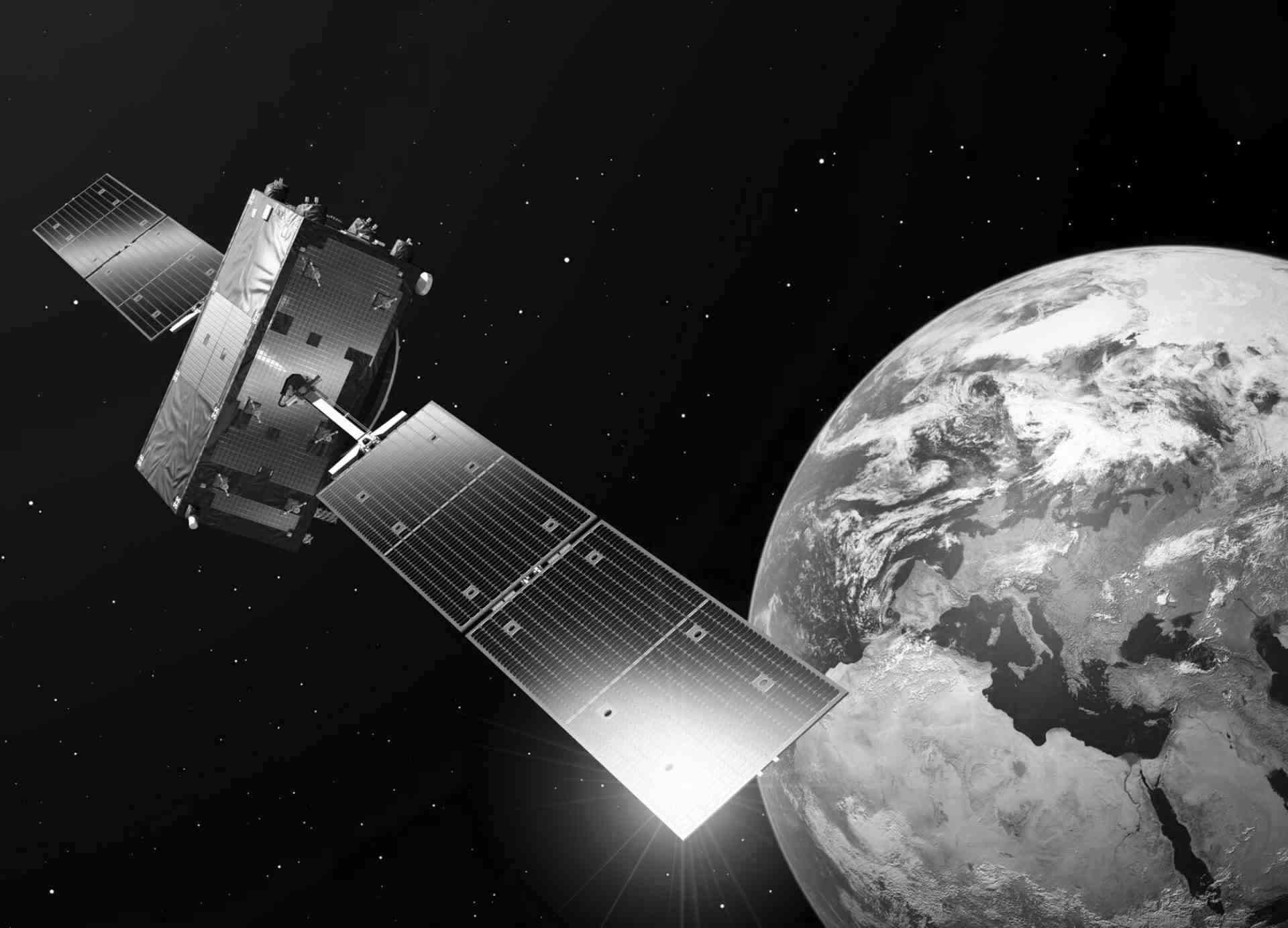CloudFerro Virtual Machines
Virtual Machines (VMs) are fully functional computational instances. They operate as if they were real physical entities with all the elements of a physical server. A user obtains his VM with full root access. He can fully manage it and install any software he has and needs. All VM in CloudFerro clouds have preconfigured access to EODATA storage.
In CloudFerro Users can use Virtual Machines (VMs) by defining their different parameters and characteristics, including machine type (physical or virtual), RAM, CPU type and number of vCores, Storage quantity and type, Operating System, middleware components, Virtual Networks connected to the machine.
Users determine the characteristics of a newly provisioned VM by selecting its flavor and base image. VMs with the same name offer identical performance from the user perspective across different clouds. Currently available flavours are presented in the following tables:
Figure 1 - Intel base flavours in WAW3-1, WAW3-2, FRA1-2
| Virtual Machines (VM) | ||||
|---|---|---|---|---|
| Available VM | vCores | RAM (GB**) | SSD Network Storage (GB) | NVMe Local Storage (GB***) |
| eo1* | ||||
| eo1.xsmall | 1 | 1 | 8 | 0 |
| eo1.small | 2 | 2 | 16 | 0 |
| eo1.xmedium | 1 | 2 | 8 | 0 |
| eo1.medium | 2 | 4 | 16 | 0 |
| eo1.large | 4 | 8 | 32 | 0 |
| eo2**** | ||||
| eo2.medium | 1 | 4 | 16 | 0 |
| eo2.large | 2 | 8 | 32 | 0 |
| eo2.xlarge | 4 | 16 | 64 | 0 |
| eo2.2xlarge | 8 | 32 | 128 | 0 |
| eo2.3xlarge | 16 | 64 | 256 | 0 |
| eo2.4xlarge | 32 | 128 | 384 | 0 |
| eo2.5xlarge | 64 | 256 | 384 | 0 |
| hm | ||||
| hm.medium | 2 | 16 | 64 | 0 |
| hm.large | 4 | 32 | 128 | 0 |
| hm.xlarge | 8 | 64 | 256 | 0 |
| hm.2xlarge | 16 | 128 | 384 | 0 |
| hm.3xlarge | 32 | 256 | 384 | 0 |
| hm.4xlarge | 64 | 484 | 384 | 0 |
| hmd | ||||
| hmd.medium | 2 | 16 | 0 | 50 |
| hmd.large | 4 | 32 | 0 | 100 |
| hmd.xlarge | 8 | 64 | 0 | 200 |
| hmd.2xlarge | 16 | 128 | 0 | 400 |
| hmd.3xlarge | 32 | 256 | 0 | 800 |
| hmd.4xlarge | 64 | 484 | 0 | 1600 |
* In WAW3-2 eo1 should be used as sandbox or non crytical usage as it dosnt offer guarantiedCPU performance
** Openstack Clouds assaigne and report in GiB
*** Local storage is only avaiable as ephemeral storage, all crytical data should be backed up to other form of storage
**** In WAW3-2 eo2 was replaced with eo2a as primary Compute flavour
Figure 2 - AMD base flavours in WAW3-1, WAW3-2, WAW4-1, FRA1-2
| Virtual Machines (VM) | ||||
|---|---|---|---|---|
| Available VM | vCores | RAM (GB**) | SSD Network Storage (GB) | NVMe Local Storage (GB***) |
| eo2a* | ||||
| eo2a.medium | 1 | 4 | 16 | 0 |
| eo2a.large | 2 | 8 | 32 | 0 |
| eo2a.xlarge | 4 | 16 | 64 | 0 |
| eo2a.2xlarge | 8 | 32 | 128 | 0 |
| eo2a.3xlarge | 16 | 64 | 256 | 0 |
| eo2a.4xlarge | 32 | 128 | 384 | 0 |
| eo2a.5xlarge | 64 | 256 | 384 | 0 |
| hm | ||||
| hma.medium | 2 | 16 | 64 | 0 |
| hma.large | 4 | 32 | 128 | 0 |
| hma.xlarge | 8 | 64 | 256 | 0 |
| hma.2xlarge | 16 | 128 | 384 | 0 |
| hma.3xlarge | 32 | 256 | 384 | 0 |
| hma.4xlarge | 64 | 484 | 384 | 0 |
| hmd* | ||||
| hmad.medium | 2 | 16 | 0 | 50 |
| hmad.large | 4 | 32 | 0 | 100 |
| hmad.xlarge | 8 | 64 | 0 | 200 |
| hmad.2xlarge | 16 | 128 | 0 | 400 |
| hmad.3xlarge | 32 | 256 | 0 | 800 |
| hmad.4xlarge | 64 | 484 | 0 | 1600 |
* Those flavours are only avaiable in WAW3-2
** Openstack Clouds assaigne and report in GiB
*** Local storage is only avaiable as ephemeral storage, all crytical data should be backed up to other form of storage
Operating systems and images
Users may utilize VM-s and other cloud Resources using the CloudFerro Dashboard, the REST API, a command line client or the Openstack Orchestration scripts (Heat). VMs can be connected to the network using virtual interfaces.
List for operating system and ready to use images available in Clouds. Some images may not be available in all locations For better information refer to horizon dashboard.
- CentOS 7
- Ubuntu 14.04 LTS, 16.04 LTS, 18.04 LTS
- Windows 2016 mini / full
- RHEL 6,7 mini / full
- SLES 12 mini / full
- OSGeo 11.0
- App Catalog Image
All the VMs come fully configured (based on the image selected) and ready-for-use, with an administrative User account, network access, preconfigured toolboxes and software components. Volume Storage may be attached to running VM-s to extend the storage space available. VMs can be started, stopped, rebooted, paused, suspended and snapshotted. Live backup functionality is also available, including server quiescing. VMs may also be attached to Virtual Networks. Virtual Networks may be system-defined or User-defined.
System defined networks include:
- Internet network used to access the global internet
- The EO Storage network available in Projects/Environments that are allowed access the EODATA
Virtual Machines provisioning
Users may utilize VM-s and other cloud Resources using the CloudFerro Dashboard, the REST API, a command line client or the Openstack Orchestration scripts (Heat). VMs can be connected to the network using virtual interfaces.
Virtual Machines billing
The VMs can be billed in monthly or longer quanta (Fixed Term Mode) or can be billed per hours of usage (Per Usage Mode). Users may also temporarily shelve their VMs based on persistent storage, paying only for the persistent storage space they occupy. Detailed pricing and availability of configurations is documented in pricing section.

